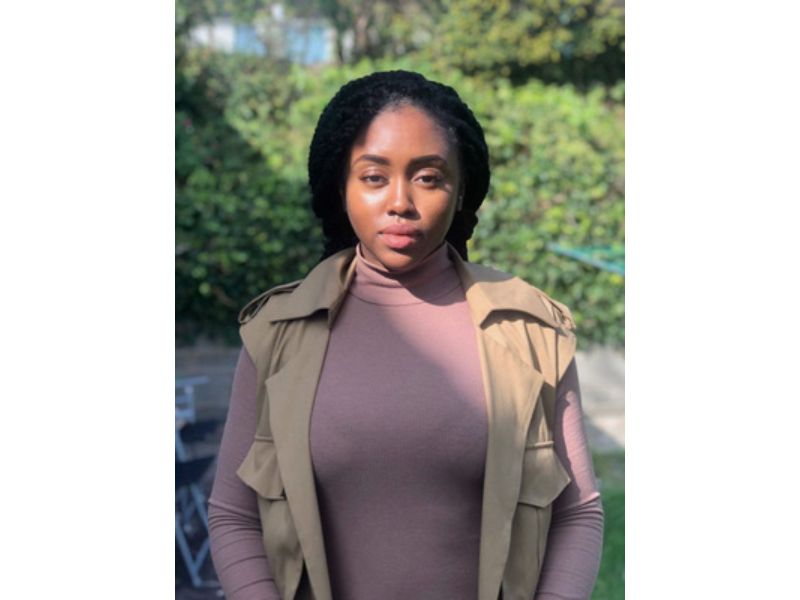There’s something inherently sinister in swanning into a village somewhere in Africa, tossing a few coins at people less privileged than you and being able to instruct them to do whatever you want.
If the price (or pay-off) is high enough, or the sense of humour crude enough the possibilities are endless.
It’s this exact boundless freedom, plus a deeply ingrained racist ideology that has made an online Chinese industry I’ve spent the last year investigating possible.
The concept behind this industry isn’t such a foreign one – you pay to receive a video of someone from a land, world or reality far away from your own reading out a personalised greeting – made just for you.
Perhaps it’s your favourite actor from the noughties, commissioned to wish you a happy birthday. Or maybe it’s a greying politician congratulating you on exam success! It’s big business and designed to connect ordinary people to the public figures they admire.
But the stars of this particular online show aren’t celebrities. They’re Africans. Men, women, and most disturbingly children.
For half a dollar a day, children are made to film such videos. They’re then sold for anything from 10 to 70 usd per 30-second video.
As a customer, you simply submit your order and requirements to the video maker or one of his numerous agents in China:
‘This video is for friends who are about to get married, I hope the children can be energetic/pumped up! They shouldn’t shout the last line’, one such order reads.
To me, it’s a human zoo of sorts, reimagined for this new, digital, socially-distanced age. Where humans, from elsewhere in the world can gawk at the foreignness and often visible poverty of the Africans featured – all through the comfort of their iPhones and favourite social media and messaging apps. It places a distance between customer and costumed-performer that allows the
former to avoid questions about the morality and regulation of this trade.
But in February 2020 one particular video exposed the even uglier underbelly of this industry.
A group of 15 or so African children are dressed in red uniforms, standing around a blackboard bearing a Chinese phrase. A voice, off-camera, then instructs them to repeat this phrase in Chinese:
“I’m a black devil,” the kids chant, still smiling happily, “and my IQ is low!” They’re then made to cheer a celebratory ‘yeahhhh!’ and flail their arms before the video comes to an end. If you’re reading this, I implore you to open a new tab, and google the word ‘Hei gui 黑鬼 – it can be translated as the Black monster or Black devil, but in practice, it’s no different in intended use to the N-word.
‘This is too far! Stop buying these videos’, one Chinese commenter raged. ‘Hahahah this is too funny’ another laughed.
One of the versions of this video racked up over 3 million views on Weibo in days.
On an internet as heavily censored as the Chinese one, racism strangely seems to evade such restriction.
Not that anyone who can’t speak the language would know. It’s this cultural and language gap that has allowed this content and others similar to it to flourish, unobstructed since 2015, despite the protests of Africans in China and concerned Chinese netizens.
With BBC Africa Eye, I investigated the origins of this video, who made it and where. Analysing hundreds of clips to find out more, our team were then able to geolocate the exact location these children had been filmed at – a village on the outskirts of Lilongwe, Malawi.
The bulk of the content filmed in this village had been uploaded to Chinese social media platforms by a man in his 20’s called Lu Ke. He was known locally as ‘Susu’, and had become one of the most prolific filmmakers in this industry. With the help of an undercover reporter, we got closer to this man, finding out more about him, and eventually gathering evidence suggesting that he was responsible for this video.
When I finally got the opportunity to confront him, I hoped speaking in his own language would be enough to invoke some remorse – or at least honesty.
I remembered a video in which he’d made two young girls from the village kiss on the lips, before turning to kiss the camera.
Or the one in which he’d told the kids to promise to never come to China, a nod to the surprisingly the widespread fear that China’s increasing courtship of Africa will lead to an invasion of dark-skinned Africans, blackening the Chinese genepool.
This is not to mention the scores of videos which carry the unmistakable hallmark of saviorism and poverty porn, framing Susu as ‘king of the children’, in his own words.
Susu denied everything we put to him and was keen to clear his name – this wasn’t exploitation, he’d fed the children and their poor families, and taught them Chinese culture – this was all ‘good
will’.
He made an even more farcical claim – this was all inspired by his country. He explained that China (the mother country) was coming to ‘help’ Africa, so its citizens, like him, were naturally following the same initiative.
I was struck by his desire to link his own individual actions to those of his country. It’s something I’d tried to avoid doing myself – I’d never seen China as a nation endorse this industry. But Susu seemingly saw no such contradiction.
Time and time again, he’d play on his domestic audience’s strong sense of national pride to garner support for his content.
To them, his content showed him doing a good job representing China overseas and spreading Chinese values. In this sense, I could see how his followers were also being deceived.
Satisfying isn’t quite the word for how it felt to see the power dynamic Susu had carefully curated over his years in this rural village, all come tumbling down in less than half a day when we confronted him.
But when Henry Mhango, my co-reporter and I left the village, my mind couldn’t help but wander to the other operations being run elsewhere on the African continent.
This glimpse into one operation, by one man, in one village left me with one main observation.
The problem with this industry is so much bigger than Susu alone.
By Runako Celina (Runako is an investigative journalist for BBC Africa Eye and BBC Eye)










